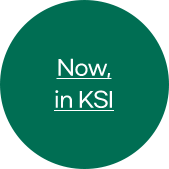
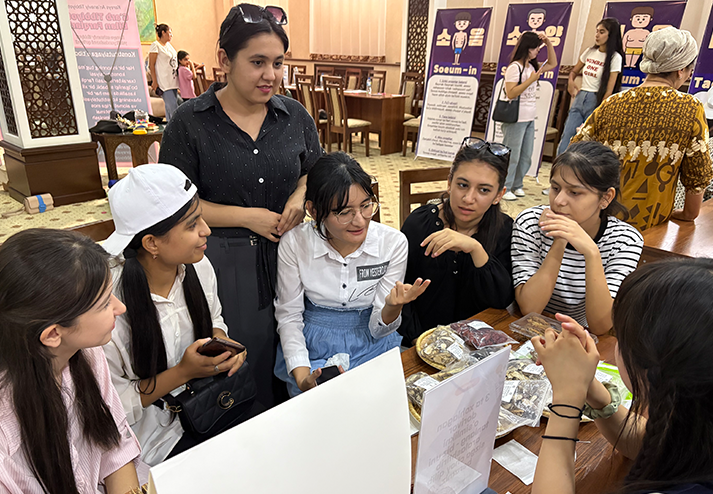
KSI Bukhara Promotes Korean Medicine in
the Heart of Central AsiaA’s Traditional Medicine
> Practical, hands-on K-MEDI Traditional Korean Medicine Cultural Experience Program linked to theoretical classes at the Department of Traditional Medicine, Bukhara State Medical Institute
> Showcased diverse traditional medicine content, including Sasang constitutional diagnosis, acup- uncture, moxibustion, cupping therapy, and introduction to medicinal herbs
KSI Bukhara, Uzbekistan successfully held the K-MEDI Traditional Korean Medicine Cultural Experience Program over two days from July 21 to 22, in cooperation with its domestic operating institution, Daegu Haany University.
The program was designed to provide participants—who had completed about two weeks of basic Korean language education and introductory Korean medicine theory from July 7 to 20—with the opportunity to directly experience Korean traditional medicine culture through practice-based activities. The event was attended not only by KSI Bukhara learners but also by professors and students from the Department of Traditional Medicine at Bukhara State Medical Institute, as well as local residents, receiving an enthusiastic response from the community.
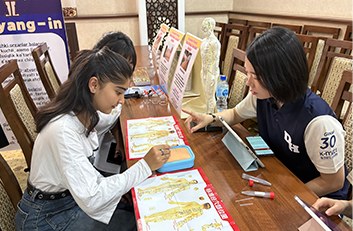 Participants listening to an explanation about the effects of acupressure at different meridian points
Participants listening to an explanation about the effects of acupressure at different meridian points 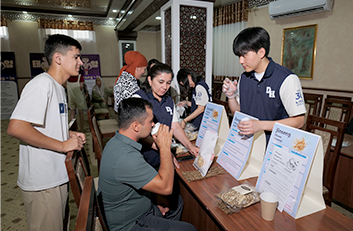 Participants smelling medicinal herbs after an introduction to their properties
Participants smelling medicinal herbs after an introduction to their properties
During the program, participants engaged in a wide range of activities that stimulated all five senses, including: an overview of Korean medicine; Sasang constitutional diagnosis; hands-on experience with acupuncture, moxibustion, and cupping therapy; introduction to medicinal herbs with opportunities to smell and touch them; tasting medicinal cuisine; learning about Korean herbal cosmetics and health foods; playing traditional Korean games; trying on hanbok; and exploring Korean food culture.
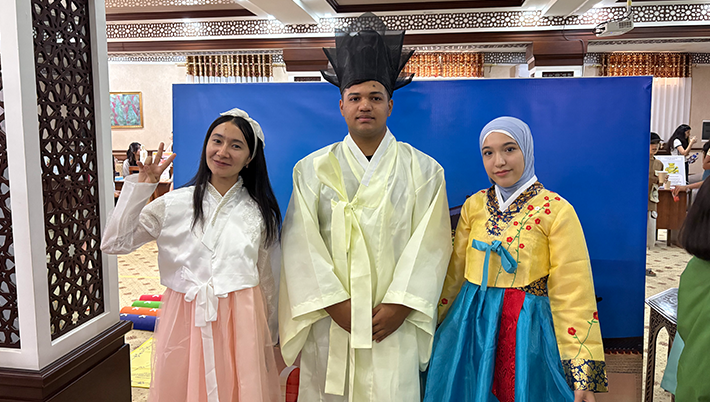 Participants wearing hanbok and taking commemorative photos
Participants wearing hanbok and taking commemorative photos
Program participants shared their thoughts, saying, “It was an opportunity to learn about Korean medicine in an easy and enjoyable way,” and “I became interested in Korean medicine and Korean culture, and if I have the chance, I would like to study them in greater depth.” Professor Madina from the Department of Traditional Medicine at Bukhara State Medical Institute, who also took part in the program, remarked, “The scientific basis of Korean traditional medicine and the hands-on, experience-centered approach to education were impressive,” expressing her hope for continued exchanges in the future.
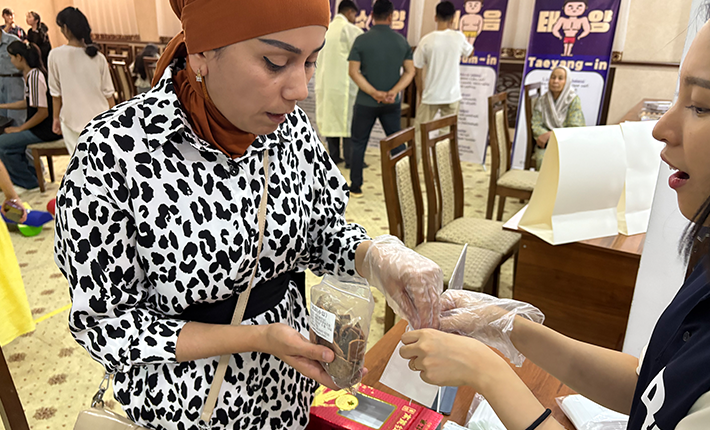 Professor Madina of Bukhara State Medical Institute participating in the medicinal herb experience
Professor Madina of Bukhara State Medical Institute participating in the medicinal herb experience
In particular, nine students from the Department of Korean Medicine at Daegu Haany University traveled to Bukhara to directly support the educational and experiential activities, further enriching this occasion for cultural exchange between the two countries.
KSI Bukhara plans to continue fostering cultural connections with the local community through a variety of programs that encompass not only Korean language education but also Korean traditional culture and academic content.
